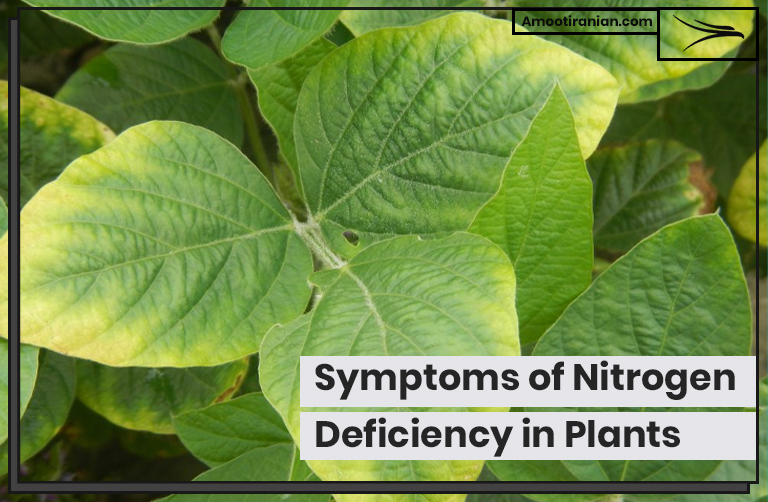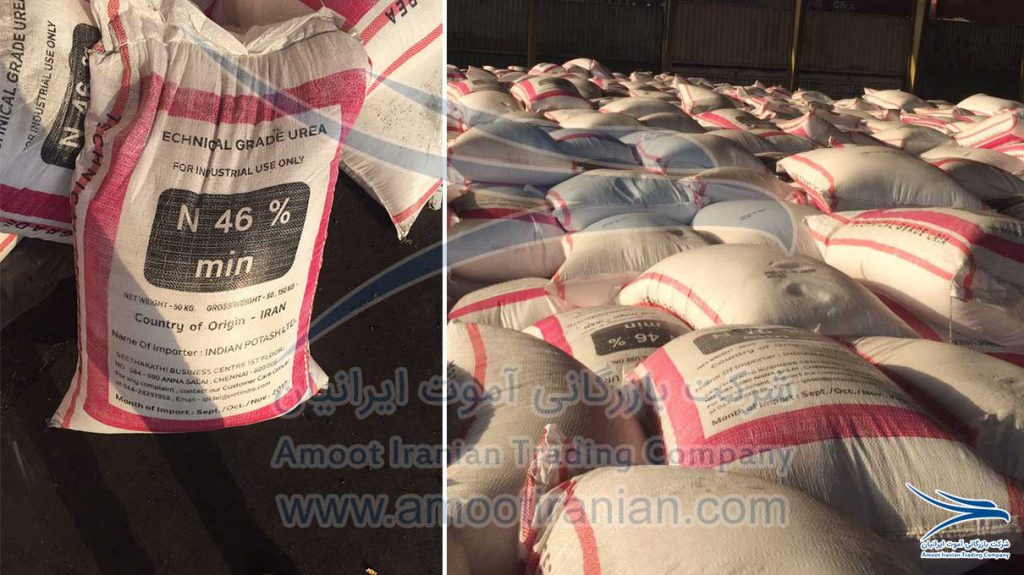.
.

Symptoms of nitrogen deficiency in plants include stunted growth, yellowing of older leaves, and reduced foliage.
In severe cases, the leaves may become necrotic and the plant may die!
.
..
What Is the Most Obvious Symptom of Nitrogen Deficiency?
The most obvious symptom of nitrogen deficiency in plants is the yellowing of the older leaves, starting from the tips and spreading towards the base of the plant.
.
This is known as chlorosis and can occur in different patterns depending on the species of plant.
.

.
As nitrogen is an essential component for the synthesis of chlorophyll, a lack of it can result in reduced photosynthesis, leading to the yellowing of the leaves.
In addition to chlorosis, other symptoms of nitrogen deficiency can include stunted growth, reduced foliage, and delayed maturity, which are mentioned in the next part fully.
In severe cases, the leaves may become necrotic, and the plant may die!
However, the symptoms of nitrogen deficiency can vary depending on the plant species, growth stage, and environmental conditions.
.
What Do Plants Look Like without Nitrogen?
Some signs of what plants may look like without nitrogen
| Sign | Description |
| Chlorosis | Yellowing of older leaves starting from the tips and spreading towards the base of the plant. |
| Stunted growth | Plants may be smaller in size and have shorter internodes. |
| Reduced foliage | The number and size of leaves may decrease, and leaves may be thinner and more brittle. |
| Delayed maturity | Plants may take longer to reach maturity and produce flowers or fruit. |
| Necrosis | In severe cases, leaves and stems may turn brown or black and die. |
| Reduced yield | A lack of nitrogen can result in a decreased crop yield, as nitrogen is essential for plant growth and development. |
It’s important to note that not all plants may show all of these signs of nitrogen deficiency, and the severity of the symptoms can vary depending on the plant species and growth conditions.
.

.
How Do You Fix Nitrogen Deficiency in Plants?
Several ways to fix nitrogen deficiency in plants
| Method | Description |
| Fertilization | Applying a nitrogen-rich fertilizer to the soil. Fertilizers containing ammonium sulfate, urea, or ammonium nitrate are commonly used for this purpose. |
| Organic matter | Incorporating organic matter such as compost, manure, or green manure into the soil can help to add nitrogen. |
| Crop rotation | Planting nitrogen-fixing crops such as legumes can help to naturally increase soil nitrogen levels. |
| pH adjustment | Adjusting the soil pH to the optimal range for the plant can help to improve nitrogen availability. |
| Mulching | Applying organic mulch around plants can help to conserve soil moisture and promote microbial activity, which can aid in nitrogen fixation. |
It’s important to note that a combination of these methods may be necessary to effectively address nitrogen deficiency in plants.
.

.
What Is the Fastest Way to Add Nitrogen to Plants?
The fastest way to add nitrogen to plants is by applying a water-soluble nitrogen fertilizer, such as ammonium nitrate or urea, to the soil or foliage.
.
These types of fertilizers are quickly absorbed by the plant, making them an effective short-term solution for nitrogen deficiency.
However, it’s important to note that excessive use of water-soluble nitrogen fertilizers can lead to environmental problems such as water pollution and soil acidification.
Therefore, it’s important to use fertilizers judiciously and based on the specific needs of the plant and soil.
.

.
.
What Fertilizer Has the Most Nitrogen?
Fertilizers with the highest nitrogen content
| Fertilizer | Nitrogen Content |
| Urea | 46% |
| Ammonium Nitrate | 33-34% |
| Ammonium Sulfate | 21% |
It’s important to note that while these fertilizers have high nitrogen content, excessive use can lead to environmental problems such as water pollution and soil acidification.
Therefore, it’s important to use fertilizers judiciously and based on the specific needs of the plant and soil.
.
Which Fertilizer Is Best for Nitrogen Deficiency?
Which fertilizer increases nitrogen? What is the best source of nitrogen for plants?
Urea is considered one of the best fertilizers for addressing nitrogen deficiency in plants, as it has a high nitrogen content (46%) and is readily available.
.
However, it’s important to use fertilizers judiciously and based on the specific needs of the plant and soil, as excessive use of nitrogen fertilizers can lead to environmental problems such as water pollution and soil acidification.
.

.
Urea Fertilizer- The Best for Nitrogen Deficiency
.
1. What Is Urea Fertilizer?
Urea fertilizer is a type of nitrogen fertilizer that contains a high concentration of nitrogen in the form of urea, a compound that is synthesized from ammonia and carbon dioxide.
.
It is a white, crystalline substance that is water-soluble and is commonly used as a source of nitrogen for plants.
Urea fertilizer is easy to transport, store, and apply, and is often used in agricultural and horticultural applications to increase crop yields and plant growth.
Urea fertilizer is one of the most widely used fertilizers in the world due to its high nitrogen content, cost-effectiveness, and versatility.
.

.
It can be applied to the soil as a granular fertilizer, or dissolved in water and sprayed onto foliage as a liquid fertilizer. Urea is also used in combination with other fertilizers to provide a balanced nutrient profile for plants.
However, excessive use of urea fertilizer can lead to environmental problems such as water pollution and soil acidification.
It’s important to use urea fertilizer judiciously and based on the specific needs of the plant and soil, and to follow recommended application rates and timing.
.
2. Urea Physical Properties
| Property | Description |
| Appearance | White crystalline solid |
| Solubility | Highly soluble in water |
| Density | 1.32 g/cm³ |
| Melting Point | 132-135°C |
| Boiling Point | Decomposes before boiling |
| pH | Slightly acidic (pH of 5-6) |
| Odor | Odorless |
| Storage | Should be stored in a cool, dry, and ventilated area away from heat and moisture |
| Handling | Should be handled with care, as it can be irritating to skin and eyes, and can release ammonia gas when exposed to moisture |
It’s important to note that these properties can vary depending on the specific type of urea fertilizer and manufacturer.
.

.
/
3. Urea Chemical Properties
| Property | Description |
| Chemical Formula | CO(NH2)2 |
| Molar Mass | 60.06 g/mol |
| Nitrogen Content | 46.0% |
| pH in water | 7.5 – 8.5 |
| Solubility in water | 108 g/L at 20°C |
| Hydrolysis in soil | Urea is rapidly hydrolyzed to ammonium ions and bicarbonate ions |
| Reaction with acids | Urea reacts with acids to form ammonium salts |
| Stability | Urea is stable under normal storage conditions |
| Decomposition | Urea decomposes to ammonia and carbon dioxide at high temperatures |
It’s important to note that these properties can vary depending on the specific type of urea fertilizer and manufacturer.
.

.
.
Amoot Iranian: Exporting Urea for Decades
Amoot Iranian Trading Company is one of the oldest exporters of urea in Middle East.
.

.
Why do so many urea buyers and urea importers like to purchase urea from Amoot Company?
| Old and Reliable Exporter | Amoot Iranian Company is a trusted and experienced exporter of urea fertilizer to customers all around the world. With years of experience and a reputation for reliability, Amoot Iranian Company has become a go-to source for high-quality urea fertilizer. |
| Exports Various Types of Urea | Amoot Iranian Company offers a wide variety of urea fertilizer types, including both Iranian and Turkmenistan urea. This allows customers to choose the type of urea that best suits their specific needs and requirements. |
| Experienced and Educated Staff | The team at Amoot Iranian Company is composed of experienced and educated professionals who are well-versed in the field of fertilizer production and export. Their expertise ensures that customers receive high-quality products and exceptional service. |
| Constant Full Stocks of Urea | Amoot Iranian Company maintains constant full stocks of urea fertilizer throughout the year, ensuring that customers always have access to the products they need, regardless of the season or demand fluctuations. |
| High-Quality Urea | Amoot Iranian Company is committed to delivering only the highest quality urea fertilizer products to customers. Its products undergo rigorous testing and quality control measures to ensure that they meet strict industry standards. |
| Competitive Urea Prices | Amoot Iranian Company offers competitive prices on its products, ensuring that customers get the best value for their money. Its prices are among the most competitive in the industry, making it an attractive choice for customers seeking high-quality urea fertilizer at an affordable price. |
.

Writer: Encieh Arbabi
Sales Manager at Amoot Iranian Trading Company
